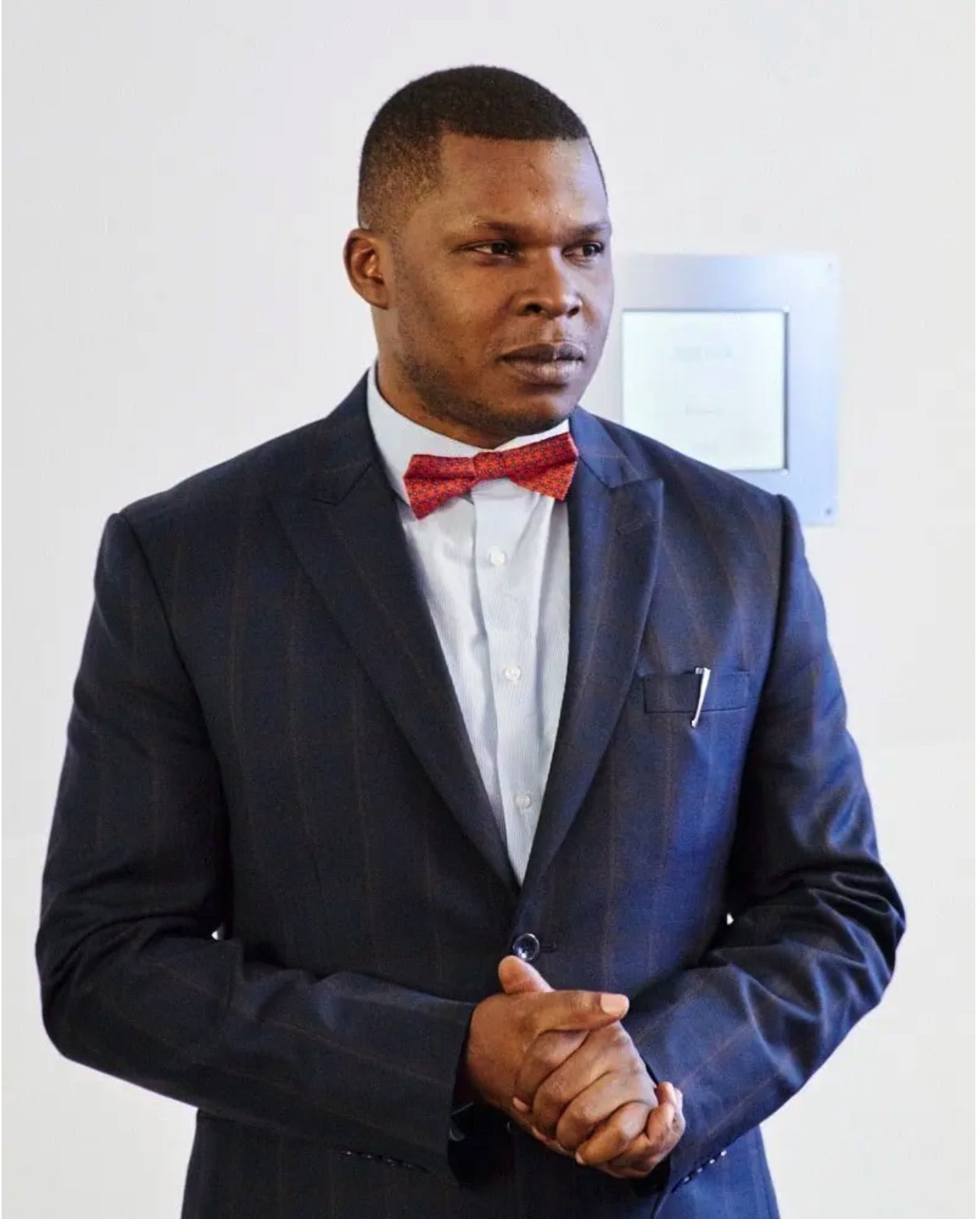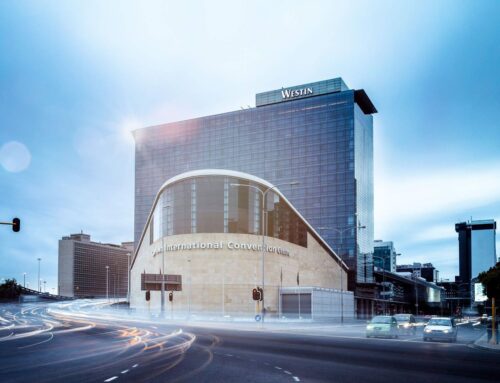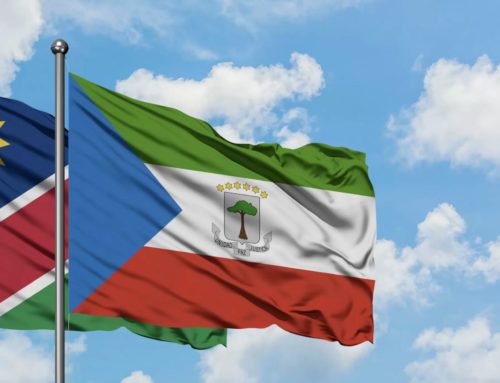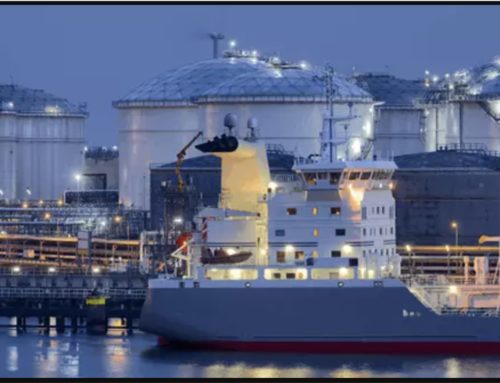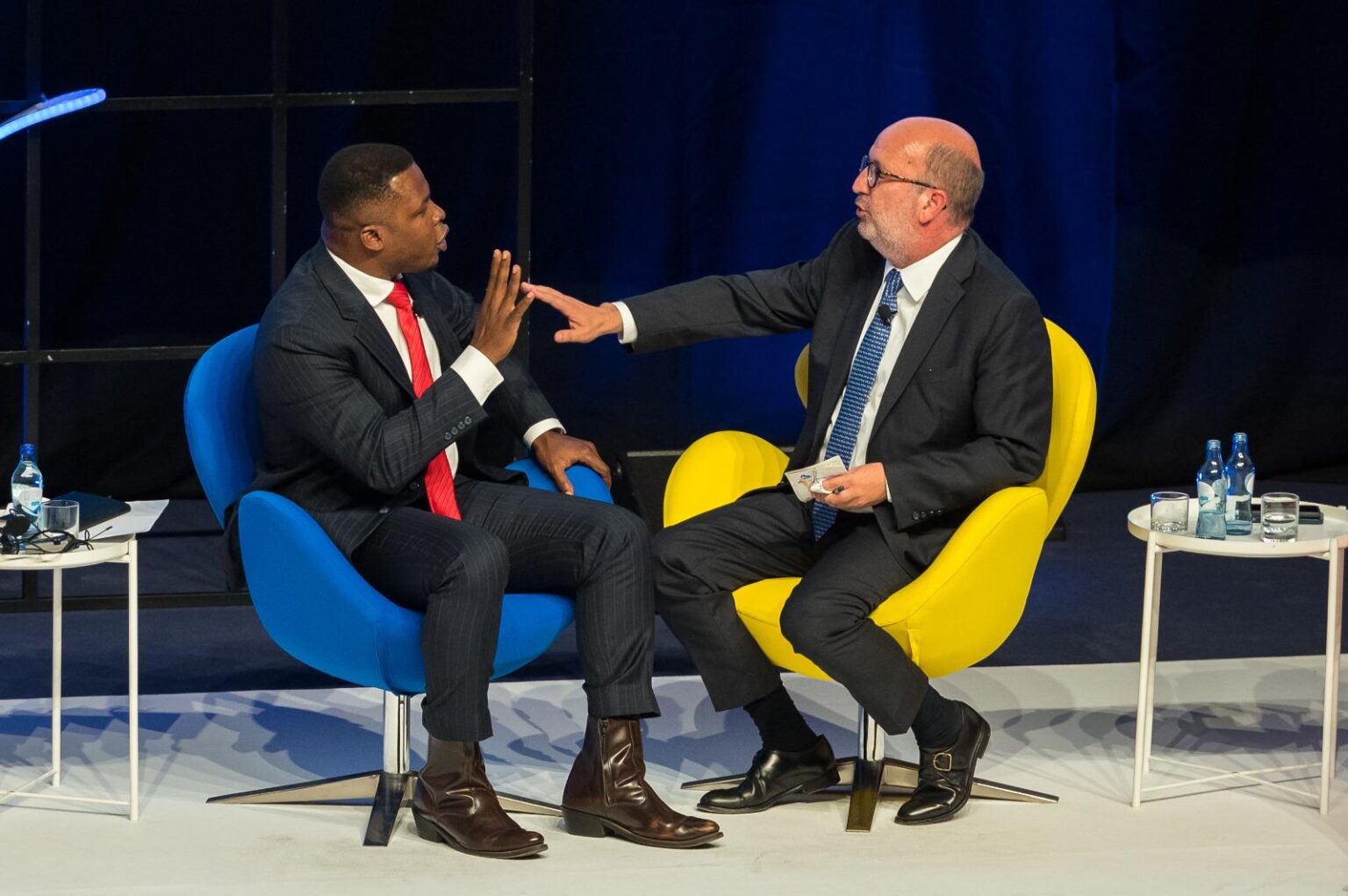
Challenges of the 21st Century
Africa’s lack of industrialization, jobs and opportunity embodies one of the challenges reshaping the world politics with energy at the forefront. The disappearance of the middle class and the growing gap between the haves and have-nots. That’s why I am paying particular attention to Africa and focusing on their issues and the dialogue.
With cowboy boots and his red power tie NJ Ayuk of the African Energy Chamber has rewritten the rules rather shamelessly in defending the dirty oil and gas industry. A capitalist who has rage against the economic forces from western countries that are reshaping wide swaths of Africa by pushing it to go green. From the bizarre dress code to the populist swagger and the pro fossil fuel rhetoric, he is shameless in his believe that Africa should be given the right to produce natural gas even after he admits climate change is a problem.
A gifted demagogue, his speeches and interviews are known for its soundbites, sharp and savvy answers with stories, where the failure of the energy and economic policies took center stage, and fiery populist jeremiads. Imagine that from someone who is a student of Milton Friedman and hates socialism.
Ayuk owes much of his success to his relationship and bromance to late opec secretary general Mohammad Barkindo and Gabriel Obiang Lima, son of the butcher and dictator of Equatorial Guinea who gave him the space to drive his strong oil rhetoric.
His Wall-Street journal bestselling book “Billions at Play, the future of African energy and doing deals, has become a must read for anything thinking energy in Africa. He also owed much of recent success to his staunch refusal to join London based Africa Oil Week in their Dubai expedition. Among the many interviews I have done with Africans, they just loved his balls on the issue despite the fact that Africa Oil Week was offering Africans a better path to a green future. Ayuk opposes any idea that a London group should lecture Africans and make decisions for Africans. He wants Africans to decide their climate agenda. It immediately made him a working-class hero even with much disdain from African elites who studied at Oxford and Harvard. Ayuk dismisses them and accuses them of imported ideas and “luxury beliefs” that have failed many young Africans. He took that defiant attitude to COP26, to meetings with African heads of states, to energy industry executives, to speaking circuits (where he charges big speaking fees), charting a doggedly independent course, often getting himself into trouble but he stays consistent and on principle.
He knows his audience. He understands them. They understand him and they will not be abandoning him anytime soon. It will only grow.
I was writing a story about Africa, and I have followed this interesting characterof Ayuk. I saw a social media posting that he will be speaking at the Euro African Forum in Portugal alongside many important people including the President.
He was also set to debate João Pedro Matos Fernandes,Portugal’s Former Minister of Environment and Energy Transition. I knew this going to be an interesting one. Other speakers includedJosé Manuel Durão Barroso, Chairman EurAfrican Forum, Joseph P. McMonigle Secretary-General, International Energy Forum, Benedict OkechukwuOramah, President and Chairman of the Board of Directors, Afreximbank, António Guterres, Secretary-General United Nations, Marcelo Nuno Duarte Rebelo de Sousa, President of Portugal and the Cape Verdean President José Maria Neves
I decided to go to Lisbon. Upon arriving Lisbon at the conference, Ayuk showed up with an assistant wearing his trademark cowboy boots. A few climate activist yelled a few choice words. He responded with a smile.
He worked the room like a pro, took the most serious and active interest in the attendees. I hate to admit it but it takes time to do what he does, to answer everyone, make himself available, really listen. I was amazed by how a group of climate activist will talk to him and come out smiling. He drilled down on his oil and gas rhetoric. I asked someone from Ghana standing next to him to get a photo, and they essential told me Ayuk’s advice is considered, serious among Africans. Loyalty was central to his nature. People confide in him, knew they could. He is very discreet. As effective as he was at connecting and building alliances, you realize this complex character and person does not trade on what he knows. It is not transactional.
VIP seats were reserved in the front. He refused to seat in the VIP area. He went to the back of the auditorium. He sad quietly with a notepad taking notes and his assistant/bodyguard sat next to him basically not wanting anyone to approach or disturb.
During the break, he walked out and you could see a few admirers mostly white and European walked to him to shake his hand. You didn’t now if the like him or they just wanted to put a face to a character that has become really unapologetic in his support for the oil and gas industry.
I walked towards him and he recognized me and from he gazed at me with clear disdain then smile and leaned towards me and said, “You are Fake News. You will never break my resolve to fight for the oil and gas industry and improving African lives”. He refused to respond to any of my questions.I stared at him blankly and shook my head in dismay. But I was still grateful for his honesty. Then he was mopped by Reuters and Forbes journalists and some young activist. Interestingly his answer to one to of the questions was very telling. You understood he has a well thought out play book that the climate activist outside calling his name were a little naïve.
He was asked by a professor, what is the strategy for decarbonization? “we need to drill more gas and produce more gas and we need to drill quickly and immediately” Ayuk said. What is has been the strategy for the meteoric rise of the African Energy Chamber and what will you do to be successful. “What Africans and Europeans who believe in oil and gas have to do is distract, dispute and inspire. My job is to distract them from their current story. Then focus on our personal situation with the use of key daily issues like energy poverty and jobs and personal responsibility and free marketsto dismantle thecurrent belief system and inspire Africans to become, as Mother Theresa would say, “A pencil in the hand of God,” and start writing a new chapter with their lives. Free Markets are the way to go not socialism.” Dangerous coming from a man who has no shame when it comes to insulting climate activist in Europe and someone who perpetuate the fraud of just energy transition. African countries have had oil and gas and they squandered the money with corruption and Ayuk is actually a lawyer who defends the corrupt officials as long as they pay him.
After Glencore was convicted of massive corruption, this buffoon was the first to attack Glencore. He did not care that Glencore belongs to his darling oil and gas industry.
I stayed at the conference to see his debate on energy transition. When he started speaking, the lights went on. The room was silent. Those waiting outside got in. A packed room of 80% European looked amazed at this black man spewing his hateful rhetoric about gas. A lot of the audience had their cell phones on and recording his discourse. Funny, lies, but he was persuasive. Some people disgusted by his pro gas advocacy, walked out of the room. Ayuk did not stop, he pressed on and double down on his pro gas pronunciation.
He told the Europeans to decarbonized quickly because Africa needs to industralise. He told them their stupidity on energy policy is making Russia and China to laugh at them. When the Minister of Environment and Energy Transitionattacked his pro-oil and gas disgraceful stance, Ayuk with his trademark smile, looked the Minister and said, “you are the reason why politicians should not be involve in energy issues. It is called global warming not Africa warming, so there needs to be a global solutions and Africans must not pay for the pollution caused by Europeans”. Ayuk pressed on that science and carbon capture was the way forward. His shameful attack on the Minister of Environment and Energy Transitionreminds me of him dismantling Africa Oil Week when they decided to leave for Dubai then lied about their speaker list and delegate list and dared to promote a green agenda. Being the opportunist that Ayuk is, he ensured they pay. Paul Sinclair, a nice guy with basic or elementary knowledge about the energy sector and Africa tried to match Ayuk and his energy chamber zealots. He got owned and I think Africa Oil Week made a mistake to go toe to toe with him.
The Minister was furious and angry, Ayuk had gotten under his skin with a diatribe about natural gas being clean energy and he called it “Green Gas”. He knew what he was doing. He knew when he hit him hard on his support for fossil fuels the Minister will loose his cool. The Minister lost his cool while he stayed cool and just kept hitting him with facts and numbers about oil and gas. He knew his numbers and did not let the emotional response of Minister get to him.
“The African oil and gas economy is the backbone of many African countries. Not only does the energy industry power our homes and businesses, but it also serves as a critical job creator and makes Africa such a desirable place to live”. He charged.
“The actions by politicians in Europe and African elites against the oil and gas industry will produce a ‘chilling effect’ against energy workers and our energy security. That’s why the African Energy Chamber is drawing a line in the sand, fighting the crippling effects of overreach by climate activist who want to stop the East African Crude Oil Pipeline, Mozambique LNG, South African Seismic programs and many oil and gas projects in Africa. Free markets should drive the transition not clueless activist”. Ayuk pressed on.
A skillful debater and with a smile he then proceeded with a straight face, he dishonestly tells the audience “that Africa’s green gas is still the only source of abundant, cheap, and reliable energy and not expensive and unaffordable solar and wind” Ayuk boosted to the audience with a calm voice and attitude that “Oil and Gas is essential to industrial civilization and, in fact, made it all possible from the beginning. Even Jesus love natural gas” then he closed with “Industrialization with oil and gas is what created the wealth and high living standards of the Western countries. Why should Africans be denied it. China and India are experiencing rapid economic growth and reduction of absolute and energy poverty thanks to industrialization and the move toward freer markets. It a shame for some in Europe to believe that Africans don’t deserve it”
It was a show. I think the Minister was not ready for a showdown with a smooth operator who studied the audience and knows that many in the room will not like him but he was speaking to the public. You saw a guy who understands the redneck culture and you would think he eats breakfast lunch and dinner at Cracker Barrel.
I asked some of the people in the audience what they thought of Ayuk after the debate with Portugal Environment and Climate Minister. “I am for decarbonization and urgent need to end the climate catastrophe and I don’t like his position in support of oil and gas but he understands the deep connections between language, oratory and real leadership. He understands that those things are serious. He understands energy poverty and he speaks for a lot of forgotten poor people. The things he says are very real. And we live in a Europe where there is almost always mistrusted, distrusted, disliked. But he pays deep attention to people and their issues. I don’t agree with him but I am very convince that a lot of people will buy into his message on gas, energy poverty, jobs and he is very funny and likeable person. He has a lot of charisma” Matilde Freitas told me. I was shocked.
Luis Magalhaes, said he does not support Ayuk’s views on oil and gas “I think it sets a dangerous precedent to have such a figure who wants more oil and gas speaking here. This is in such bad taste. I can’t understand how such a likeable person will sell his soul to the evil oil industry. He religion is free markets”
Carlos Sousa was more sympathetic to Ayuk “I don’t have the right to impose my belief on Africans, No one should stop Africans from using their gas to develop themselves. It’s their right. Even God gives us a choice of heaven or hell. I think Ayuk is going to hell for not being an advocate for climate change”.
Lisa Ingabire from Rwanda was not too concerned about the criticism of Ayuk and the African Energy Chamber. “What people don’t understand is that his critics are always the first to run to him for help. When we needed someone to help raise money for renewable projects, none of the climate activist stepped up. Mr Ayuk was the first to rally business support. You call him to speak to students, he comes for free. I can’t criticize a man who devotes a lot of time and money to driving up local content and women empowerment. He is an ardent supporter of natural gas which I think he is wrong but he has supported the renewable community. He is a singular man, a profound presence in many lives.” I believe he probably charges a lot of fees to be able to raise money for charities or deals he is involved with. He is a capitalist and nothing comes free.
Ayuk has a charismatic and savvy way in his command of his scarry fossil fuels rhetoric, speaks to a variety of audiences and is consistent in his discourse of promoting a pluralistic view. Ayuk’s as a caricature and punching bag of everyone who rightfully hates the oil and gas industry is indirect but nonetheless crucial. This leads me believe that Ayuk’s symbolism, person, actions, and thought are due for a thorough reconsideration.



